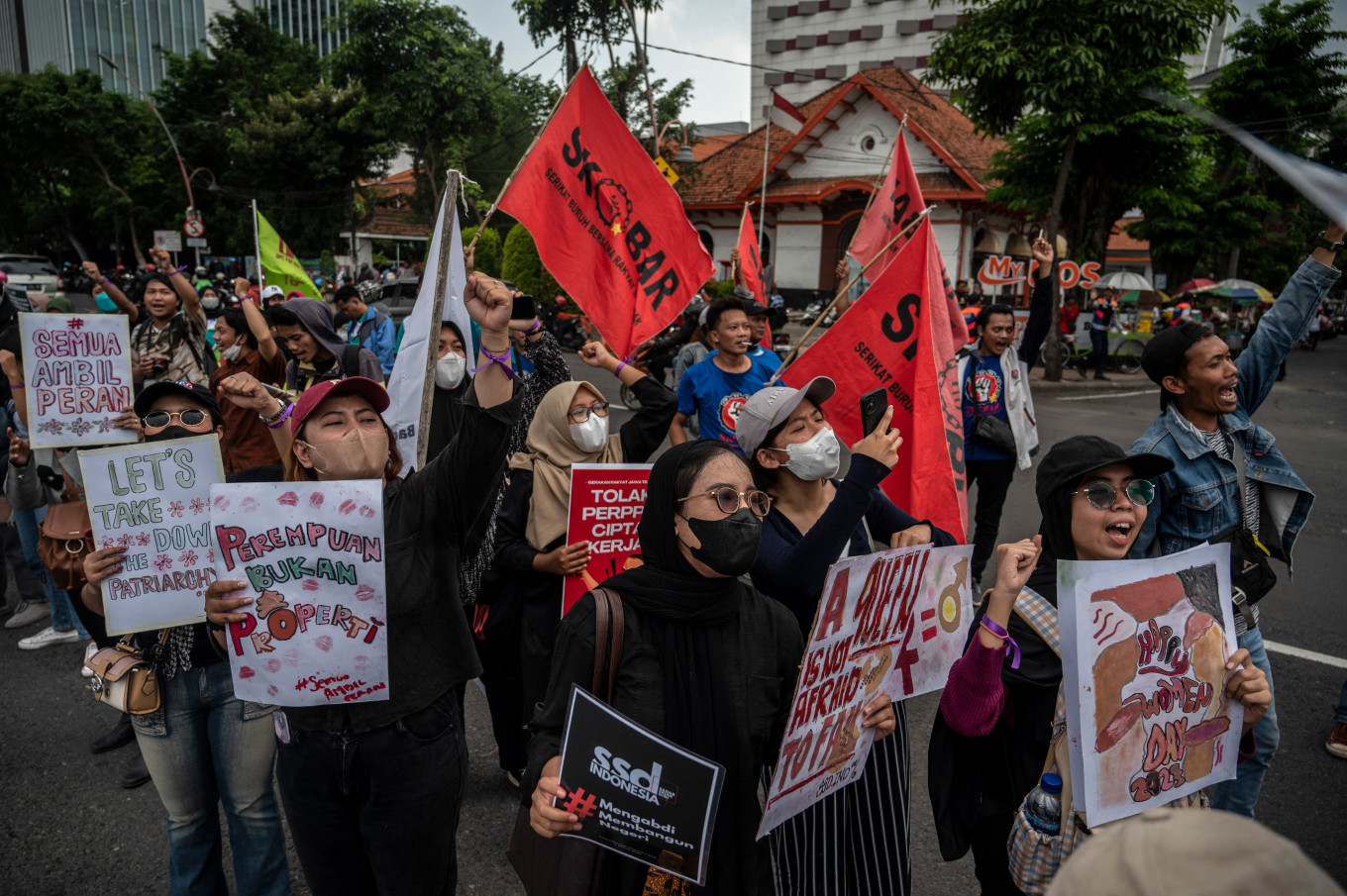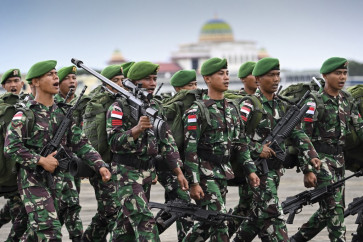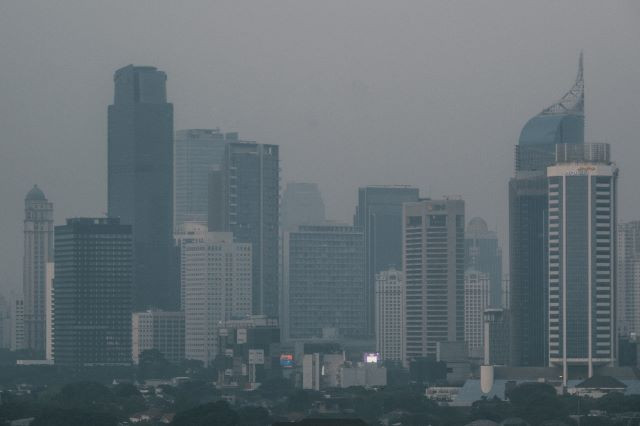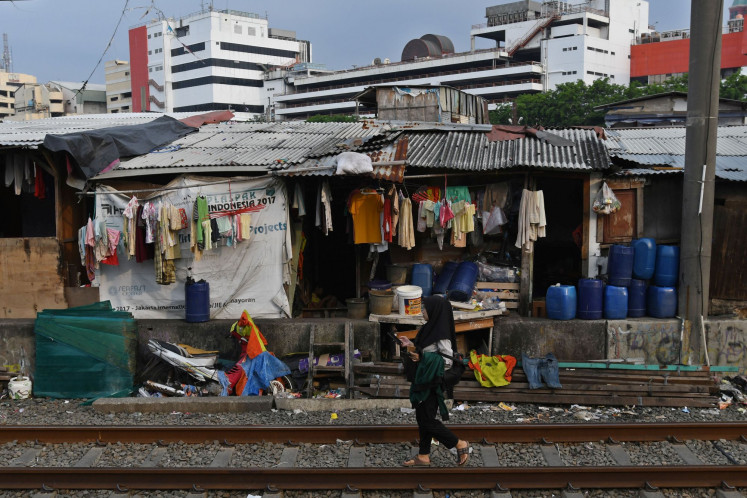Popular Reads
Top Results
Can't find what you're looking for?
View all search resultsPopular Reads
Top Results
Can't find what you're looking for?
View all search resultsRI under pressure to fully embrace UPR recommendations
Human rights groups bemoan govt selectiveness.
Change text size
Gift Premium Articles
to Anyone

W
hile lauding the government for supporting the majority of recommendations on improving Indonesia’s human rights provided during the fourth cycle of its Universal Periodic Review (UPR), a coalition of local rights groups has also criticized the government for not following through on the most pressing recommendations.
The UPR is a peer review mechanism that applies to all 193 United Nations member states and is managed under the UN Human Rights Council.
The Civil Society Coalition for UPR Reporting, which includes Amnesty International Indonesia, the Commission for Missing Persons and Victims of Violence (Kontras), SAFEnet, the ASEAN SOGIE Caucus and LGBT rights group Arus Pelangi, has expressed disappointment over the government’s selectiveness over the recommendations it received.
According to an addendum to the Report of the Working Group on the UPR – Indonesia dated March 17, 2023, the government has decided to fully support 205 recommendations, partially support five recommendations, and take note of 55 recommendations it received from other member states during its UPR session in Geneva last November.
“We view that the Indonesian government has not evenly distributed its attention to some of the issues that were recommended during the review,” the group said in a statement published on Thursday on the Kontras website.
The group pointed out that the government did not support any of the recommendations related to capital punishment, even though the 1945 Constitution recognizes the right to life, and that Indonesian courts handed out 66 death sentences between January 2020 and September 2022.
It also highlighted that many death sentences had caused what is known as the “death row phenomenon”, causing great psychological and physical distress to inmates, and raising the possibility of unfair trials.
The government also seemed reluctant to allow the UN High Commissioner for Human Rights to investigate violence in Papua, and although it initially promised to let foreign journalists into Papua in 2015, it decided against allowing access in 2019.
The group stated that the human rights situation in Papua had stagnated, as incidents of violence against civilians continued to occur. It added that 40 such incidents involving the Indonesian Military (TNI) and the National Police as the main perpetrators occurred in 2020, followed by 39 incidents in 2021 and 48 in 2022.
“In this fourth cycle [of the UPR], the Indonesian government did not support any recommendations for investigation, accountability and prevention of impunity in Papua,” it said in the statement.
“However, during this period of time, accompanied by the deteriorating human rights conditions in Papua, it approved four new autonomous regions with the potential to give rise to new forms of violence against civil society.”
The group also criticized the government for only partially supporting the recommendation to ratify the UN rights body’s Optional Protocols to the Convention Against Torture and Other Cruel, Inhuman or Degrading Treatment or Punishment (OPCAT) and the International Convention for the Protection of All Persons from Enforced Disappearance (ICPPED), which was adopted in 2007 by the UN General Assembly.
Both recommendations have been made since the first cycle of Indonesia’s UPR.
The government also has yet to ratify 1998’s Rome Statute of the International Criminal Court, which could allow the court to facilitate resolving the country’s past gross human rights violations.
The group underlined that while the government supported eight out of the 13 recommendations related to LGBT rights, it still argued for caution in their implementation, as no international conventions specifically protecting LGBT rights existed. The government also claimed that Indonesia had no national regulations criminalizing the LGBT community.
“[But] discrimination against LGBTIQ has intensified and become more structured,” said the group’s statement, alleging that regional administrations had started to introduce bylaws that discriminated against the LGBT community.
In the statement’s conclusion, the group urged the government to commit to implementing all 210 recommendations it supported in the fourth cycle of Indonesia’s UPR. It also urged the government to “not be indifferent to” either the 55 recommendations that it took note of or the five recommendations it partially supported.









